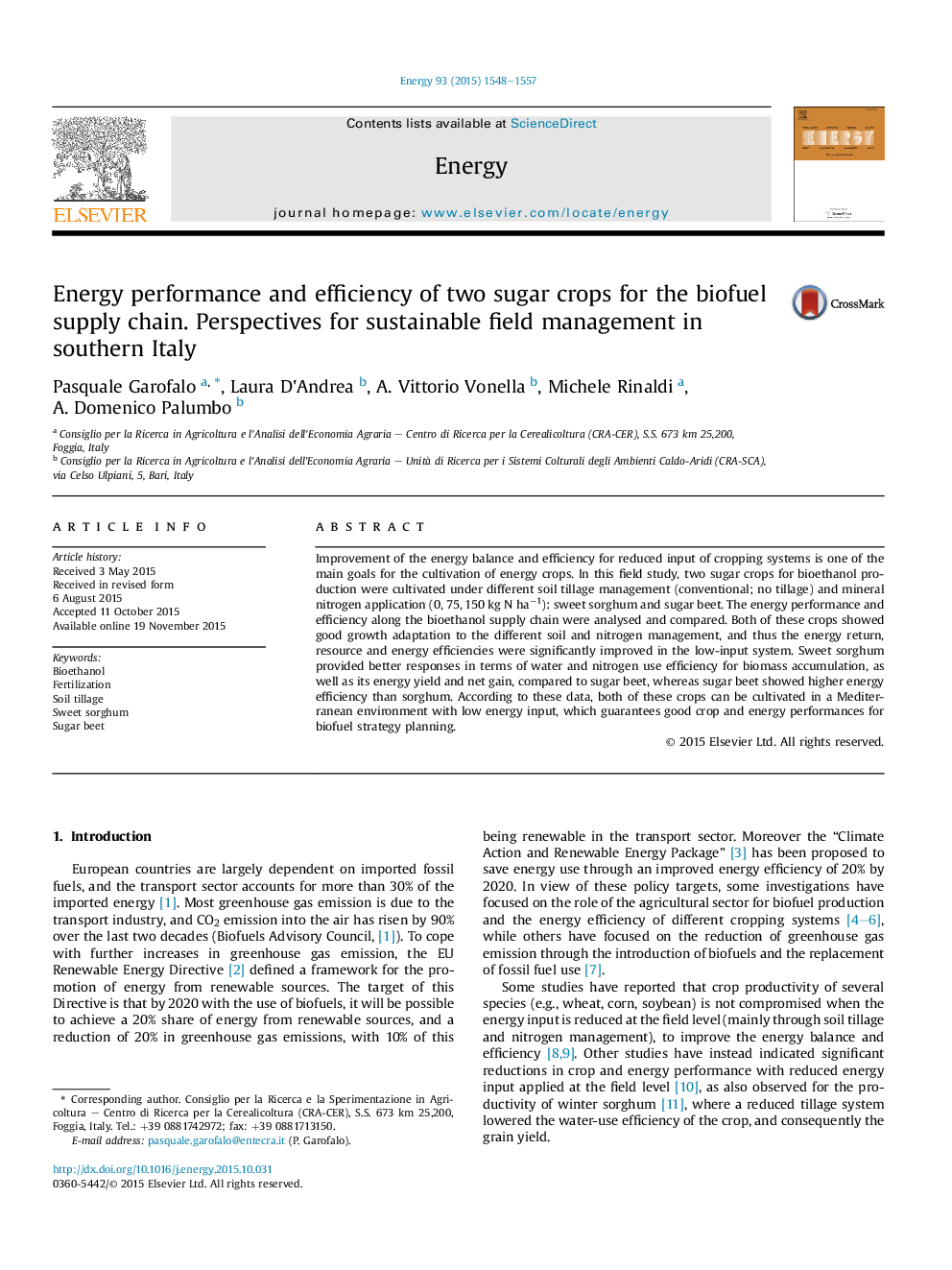| Article ID | Journal | Published Year | Pages | File Type |
|---|---|---|---|---|
| 1731598 | Energy | 2015 | 10 Pages |
•Two sugar crops for the bioethanol supply chain were evaluated.•Energy performances and efficiencies were assessed under different energy input.•Sugar yield resulted not compromised by the different crop management.•The energy gain was improved with low energy input at field level.•Sweet sorghum gave the highest energy yield, sugar beet the energy efficiency.
Improvement of the energy balance and efficiency for reduced input of cropping systems is one of the main goals for the cultivation of energy crops. In this field study, two sugar crops for bioethanol production were cultivated under different soil tillage management (conventional; no tillage) and mineral nitrogen application (0, 75, 150 kg N ha−1): sweet sorghum and sugar beet. The energy performance and efficiency along the bioethanol supply chain were analysed and compared. Both of these crops showed good growth adaptation to the different soil and nitrogen management, and thus the energy return, resource and energy efficiencies were significantly improved in the low-input system. Sweet sorghum provided better responses in terms of water and nitrogen use efficiency for biomass accumulation, as well as its energy yield and net gain, compared to sugar beet, whereas sugar beet showed higher energy efficiency than sorghum. According to these data, both of these crops can be cultivated in a Mediterranean environment with low energy input, which guarantees good crop and energy performances for biofuel strategy planning.
